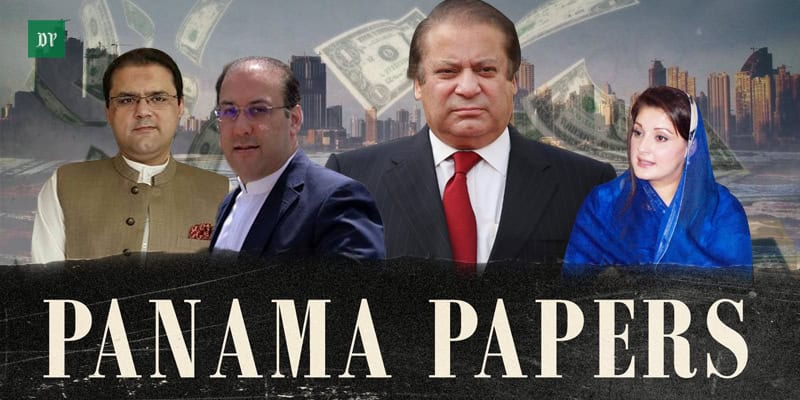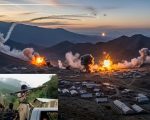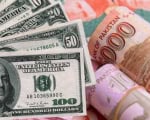There has been so much discourse on the Panama Papers and JIT in Pakistan’s political circles that it even found its way into the address by Prime Minister Nawaz Sharif and Chief Minister Shahbaz Sharif at the inauguration of the first 760MW-units of the Haveli Bahadur Shah Power Plant near Jhang.
The first unit of the power plant, fueled by environment-friendly liquefied natural gas (LNG), will add 760 megawatts to the national grid.
It is expected to be environment-friendly with a minimum impact on climate change, as the technology in use guarantees the productivity and regulation of the plant at 62.44 per cent on LNG. A saving of Rs 57 billion has been achieved in the project cost as compared to the upfront tariff given by NEPRA, owing to a transparent procurement process, through international competitive bidding and PPRA laws.
The prime minister was informed that the award of Engineering Procurement Contract (EPC) for the project led to one of the lowest EPC cost per megawatt resulting in an annual saving of rupees two billion through optimum operations and management cost.
The Haveli Bahadur Shah Power Plant Project had also set the record of the fastest gas turbine installation from the arrival of turbines on site – 94 days and 73 days respectively. The plant, established about 27 kilometres away from Jhang city will produce electricity at the rate of Rs 6.42 per unit.
In comparison to the other projects in the PPP government, the current government has been able to complete all its projects at a lower cost.
Regarding the power projects, it is pertinent to note that NEPRA has set up the standard cost of producing electricity. All projects are approved and decided under the same cost. In hindsight, there would have been no criticism of the projects if the costs and savings had already been publicised and accounted for. There would have been no reason to demand accountability, but by setting up an example of honesty, the default cost was reduced giving NEPRA an opportunity to review future plans.
Shahbaz Sharif used this example to point out that the government would not have been able to save money if it was corrupt. His stance was that the Prime Minister and his team are trying to save billions of rupees, implying that it was an exercise in futility to charge them in the Panama case or to question their honesty and sincerity.
Shahbaz Sharif also contended that people will forget the Panama case, but they would not be able to forget power generation projects which saved billions of rupees. Prime Minister Nawaz Sharif was also convinced that this case would not prove to be an obstacle in the way of generating electricity and eliminating load-shedding, paving the way for Pakistan’s economic development, hinting that “conspiracy theorists” would be left with “egg on their face”.
At this time, the JIT is probing the Panama case under the supervision of the Supreme Court, and will present its report in a few days. It will become clear after the submission of the report what actions will be taken by the three-member bench.
The majority of legal experts agree that no prime minister can be disqualified under Section 184 (3) of the Constitution. If this door is opened, then 58 (2) B will be restored in a new way. Under this section, the President of the Republic holds the right to dissolve the National Assembly and dismiss the Prime Minister.
The Supreme Court is a “court of appeal”, which means that there is no legal recourse except an appeal of mercy to the President of Pakistan. Every Pakistani has the right to equal treatment, without discrimination, under the law.
Pakistani courts operate on three levels according to the constitution, thus giving every citizen the right to two appeals. Those who monitor international law hold the opinion that no law can be called fair if it does not give the right to at least one appeal. Therefore, the Supreme Court accords even those convicted under the Army Act the right to appeal. However, if a full bench of the Supreme Court acts as a preliminary court, the right to appeal is not available. This means that the law and its various articles need to be worded in such a way that no citizen is deprived of his right to appeal.
Several members of political circles believe that it is not possible to declare the Prime Minister ineligible after establishing his involvement with the Panama Leaks. Regardless of the situation, the matter needs to be sent to the lower courts, in order to enable the parties to present their evidence. Syed Yousuf Raza Gilani’s case is irrelevant in this regard. The former prime minister was declared ineligible only after being convicted of contempt of court. There were no ongoing cases under Article 184(3) at the time. The fact that his conviction was not disputed is a separate issue, and had the Parliament been united and the Muslim League (N) leadership thrown their weight behind Yousuf Raza Gilani, the Supreme Court could have been thwarted. Muslim League (N), however, decided to side with Justice Iftikhar Choudry, and Gilani was sent packing.
It would not be wrong to state that two judges of the Supreme Court have declared that the Prime Minister can be declared ineligible under article 184(3). It is important to note that the opinion of two judges does not constitute a Supreme Court decision, and that three judges did not concur, making this a minority opinion.
An interesting, but bitter, fact is that when the Supreme Court decision was presented in written form, it opened on a dissenting note, written by the head of the bench, and overshadowed the comments made by the majority. This demanded that the parliament would interpret Article 184 with a two-third majority in order to prevent the court from declaring public representatives as ineligible, or that the right to appeal against the decision would be provided. This has not been done yet. It is likely that the Muslim League (N) believes that the political timing is not right yet. However, this is a matter which cannot be ignored if a “judicial coup” is to be prevented – a route Justice Khosa tried to take, before being thwarted by three of his colleagues.














